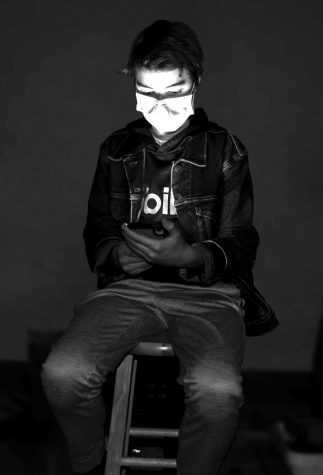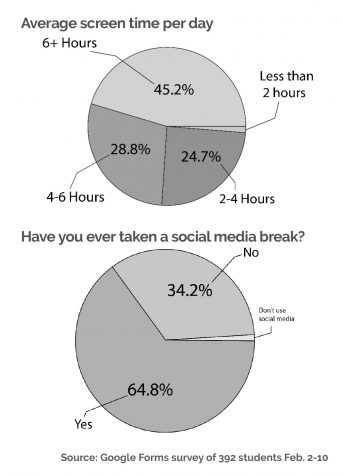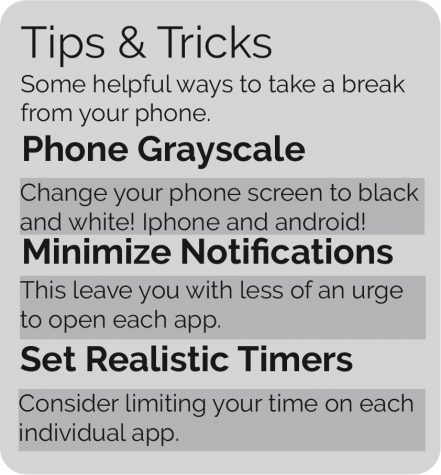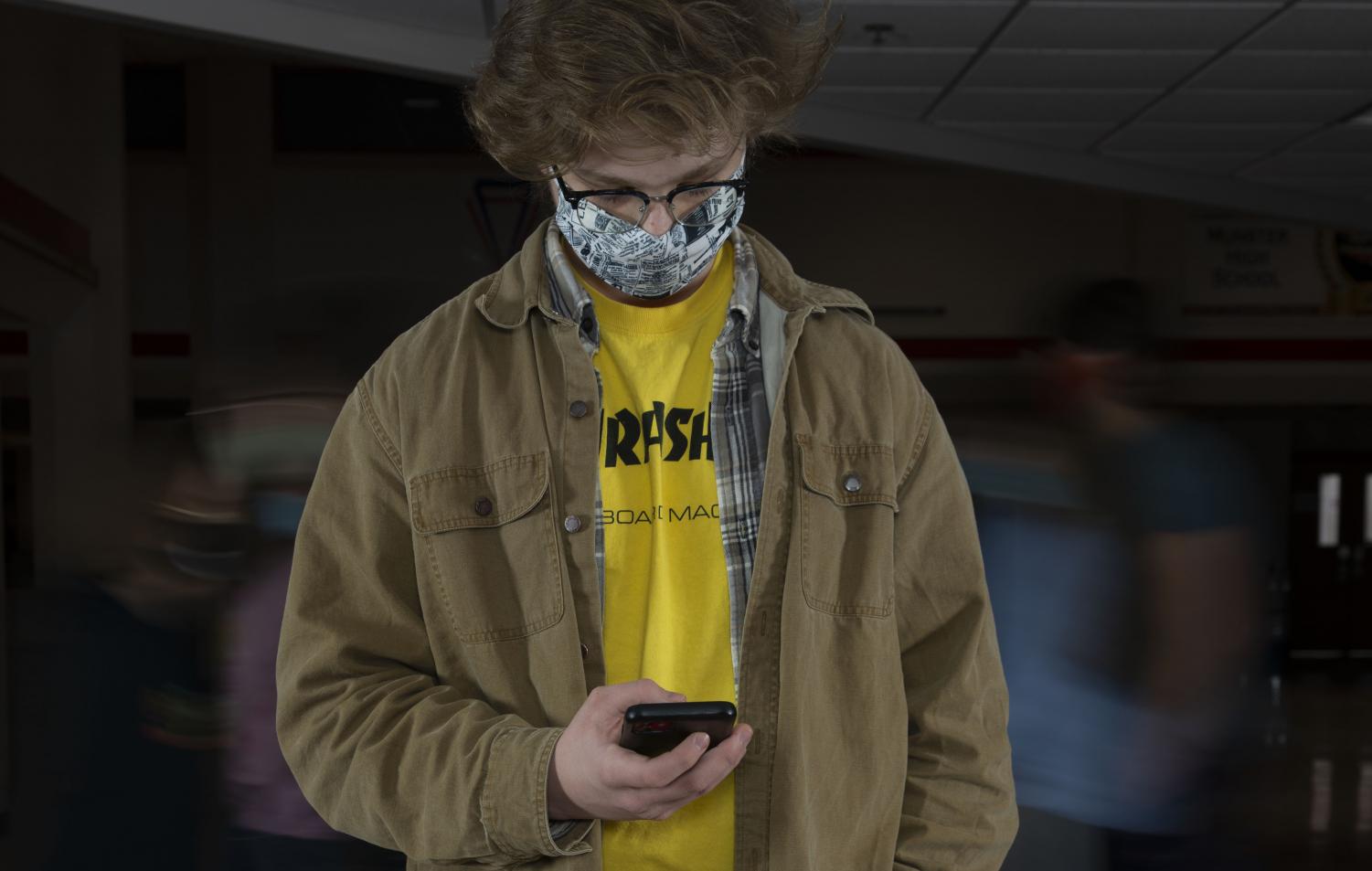“I’ll get off my phone in a few minutes… but I’ll watch just one more video.” – Students reflect on social media and phone usage
With phone usage having a strong hold on daily life, students reflect on screen time and social media usage
February 18, 2021
It starts off slow, creeping up on us without our knowledge.

A five minute break between assignments quickly becomes piles of work left at our desk and a daily screen time of nine hours.
“I use my phone basically every hour of the day when I’m not sleeping,” Kiki Petrovic, freshman, said. “I always find myself scrolling on my phone and watching the time run by so fast. (Social media) has definitely caused problems, but I don’t think I could stop using it.”
One of the biggest catalysts for procrastination is technology. We hear and see this everywhere. We listen as we are told to shut off our phones while working, to take a quick break and we say to ourselves, “I should do that,” before proceeding to spend two more hours staring at a screen.
“My phone definitely gets in the way of getting work done,” Marley Anderson, junior, said. “I’ll scroll through Instagram for hours when I could be getting homework done instead. When I was doing school online, I would find myself going on my phone way more than necessary.”
Many are aware of their phone addiction and still have not taken steps to change; however, the narrative changes when we convince ourselves that we can somehow manage our time as we continue to scroll through TikTok dances and Instagram photos. This is especially clear as the simple act of leaving your phone in another room can go miles for your schoolwork.
“Usually, I’m very good about leaving my phone downstairs when I study so I’m not tempted or distracted by it,” Libby Fesko, junior, said. “It allows me to maximize my time and get as much work done as possible.”
Social media also plays a substantial role in what seems like this never-ending cycle, and it accounts for a myriad of other issues normalized today. At a young age, that can reach as far as elementary school, there’s a heavy push towards social media. In 2018, a Pew Research study found that around 97 percent of teenagers had a social media platform, and 45 percent were online almost constantly.
“Most of the times that I’m on social media, it’s just to browse,” Anushka Majety, junior, said. “However, there are definitely times where I get stressed clicking through everything and getting so much information at once.”
Social media is not a simple time waster—if it was, the effects would be much less severe and much less addictive. Through TikTok, Snapchat, Instagram—platforms that predominantly display the highlights of life—users publish when they look their best, feel their best and act their best, and though we are unconsciously aware of this, it can be difficult to consider when we cannot look past what is right in front of us.
“Social media used to make me feel really bad about myself,” Hiba Fatima, sophomore, said. “I would compare myself to people constantly and I had an unhealthy relationship with it, but I started working on myself and realizing that people only post the best parts of their lives and it’s not fair to compare myself to them. Since then, I’ve enjoyed social media more and it’s been more of an outlet.”
 Though some may consider it a stretch to quit social media all together, taking a social media break is becoming an increasingly ideal option. It allows us to focus on more time-pressing matters, it allows for self-reflection and it allows us to immerse ourselves in self-care.
Though some may consider it a stretch to quit social media all together, taking a social media break is becoming an increasingly ideal option. It allows us to focus on more time-pressing matters, it allows for self-reflection and it allows us to immerse ourselves in self-care.
“I took a social media break during the summer and it was probably the best couple of weeks in my entire life,” Gracie Kisala, sophomore, said. “I would still call my friends and reach out all the time, but I noticed myself going outside more, engaging in more face to face conversations and not constantly putting myself in comparison to others. It was so much less stressful and talking about it makes me want to go on another social media cleanse.”
Some students even stated that they took a social media break despite not believing phone addiction was a major part of their lives.
“(Social media) wasn’t taking up too much of my time,” Khtab Ishtawi, sophomore, said. “But it can be a nuisance and you need a break from that part of media.”
However, many students were already facing difficulty when it came to screen time prior to quarantine. There’s no doubt that a predicted two-week to a nearly year-long period of isolation had some effect on phone usage.
“When I don’t have my phone, I feel more productive and can actually get my work done,” Elena Yanef, junior, said. “Before quarantine (social media usage) wasn’t bad at all. After quarantine, I find myself using it all the time.”
Gradually stepping away from your phone and taking periodic breaks can have an enormous impact on your daily life. The simple act of phone usage can change from easy going to overwhelming in a split second, acc0rding to Marley.
“Phone usage is definitely addictive,” Marley said. “I don’t even want to know how many hours of my life I have wasted scrolling through my phone. I just know that when I’m old and reflecting back on my life, I’m going to regret how much time I wasted on my phone. It’s definitely not worth it.”
